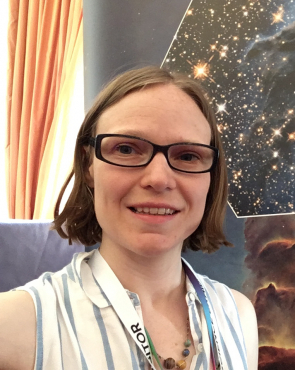How to be an exoplanet detective
Guest Speaker
Thursday, 17th July 2025 (19:45 - 22:00)
Venue: Hybrid
Jo will discuss how atmospheric retrieval approaches for exoplanets have evolved through the Hubble era to current approaches for JWST. I will touch on how our understanding of exoplanet clouds has changed over time, and the latest challenge of adapting our models to encompass the 3D nature of exoplanets – even though we only see them as a point source.
Join online if you can't meet us at the meeting room HERE
Speaker: Jo Barstow
I hold an Ernest Rutherford Fellowship from the Science and Technology Facilities Council, to investigate how 3D structure of exoplanet atmospheres can be inferred from observations obtained during transit and eclipse. I am also a Science Working Group lead for the European Space Agency Ariel mission (https://ariel-spacemission.eu/). I previously held a Royal Astronomical Society Research Fellowship at University College London, prior to which I was a postdoctoral researcher at the University of Oxford. I completed my DPhil at the University of Oxford in 2011.
I am currently a member of the RAS200 steering committee, for the Royal Astronomical Society, and previously served on the Council from 2015 - 2016. I am a mentor for the Supernova Foundation, which aims to support junior women starting their careers in physics, especially those from developing countries.
Research interests
My research area is planetary atmosphere modelling, with a current focus on extrasolar planets. I use spectral inversion techniques to infer atmospheric temperature structure and the presence of gases and aerosols from spectra obtained during exoplanet transit and eclipse. My particular interest is modelling and observation of clouds and hazes on exoplanets. Recent work includes a comparison of techniques for modelling cloudy hot Jupiter's.

